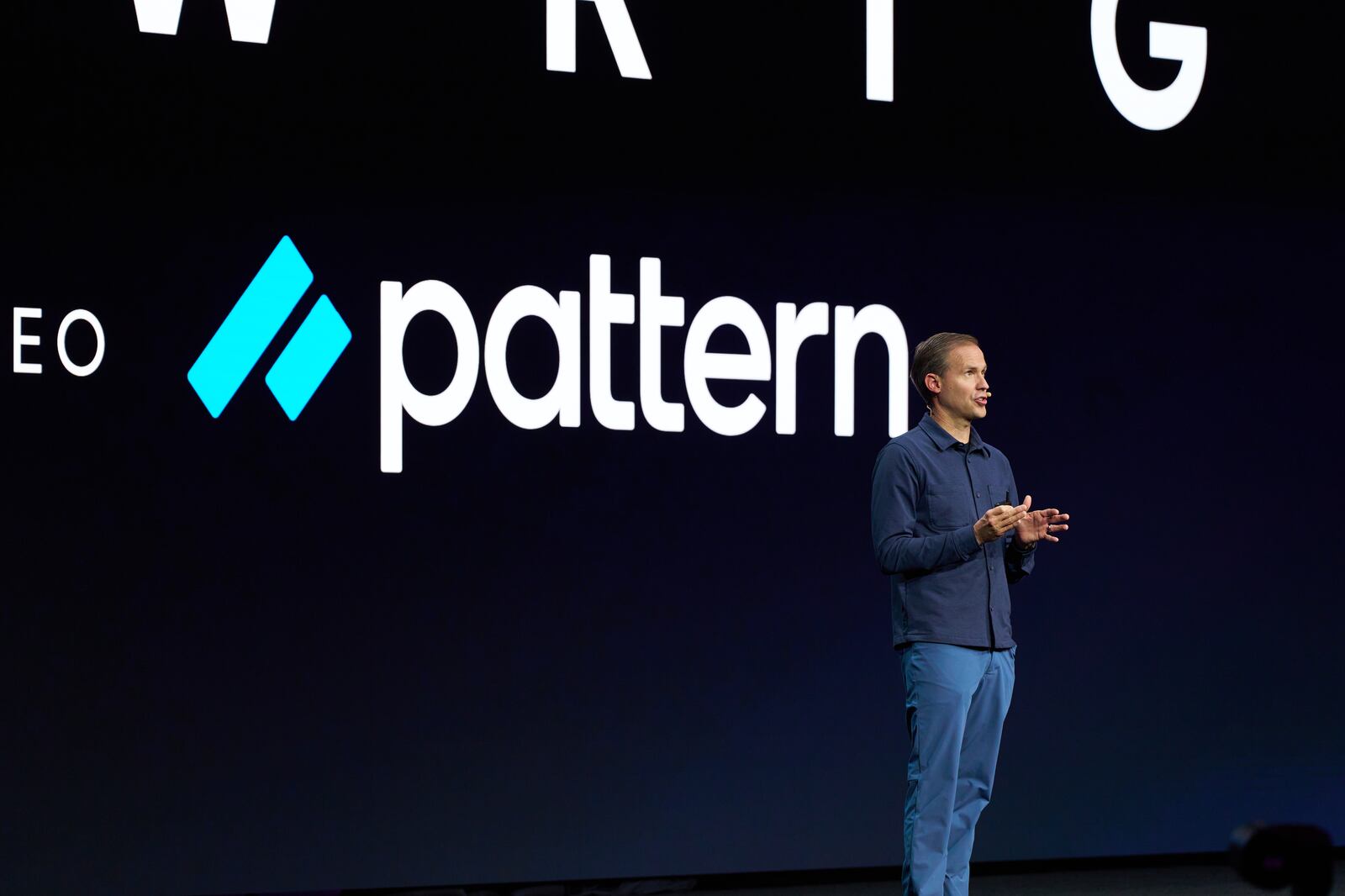After Pattern co-founder and CEO David Wright wrapped up his keynote address — and day one of the company’s annual Accelerate event — he got candid about the e-commerce AI puzzles he’s most excited to help piece together.
Pattern is a multi-billion-dollar company founded in 2013 that specializes in e-commerce acceleration. It provides advanced tools and analytics to help brands optimize their presence across multiple e-commerce platforms like Amazon, eBay and Walmart.
What is happening in the e-commerce world that you are most excited about exploring and pursuing to help Pattern’s partners elevate success this year?
My No. 1 is probably LLMs (Large Language Models) in general and how much people trust them. … What’s really behind the scenes? The machine uses query, key and value dimensions to make decisions. It’s correlating words or tokens. It’s so trustful because it’s doing [its work] mathematically. It doesn’t exaggerate anything one way or the other. It’s just a math equation, but people really like that.
How is Pattern leveraging its strengths to help its partners with LLM searches?
Pattern has 44 trillion points of data on e-commerce in general, from every brand you can think of and every audience you can think of. We had tons of data that was almost unusable until AI came around. We’re essentially taking all of that data and building topics and questions, sending them to the LLMs, … getting the answers back, and then asking things like: “Which brands are most reputable by ranked order?”
Then we collate all of the data, give the brand a scorecard, and say, “Here’s how the, possibly, most trusted source on the planet views you.” That’s probably the most interesting because there’s no ad spend. I’ve told brands it pushes them back to really true brand building. You’ll have to truly be recommended by communities, which is highly weighted in the models. You have to do it right and it’s very hard.
Tell us more about the scorecard.
We have a GEO (Generative Engine Optimization) scorecard. You’ve heard of SEO (Search Engine Optimization) forever. Now, it’s GEO. We can give a brand a scorecard and tell them how they’re doing. That’s really helpful because when people have data, they can get to work. We can say, “Here’s where you’re being sourced. Here’s your overall sentiment. Here’s your reach. Here’s your ranking against other brands.” We’re just getting started. It’s really fun.
Had Pattern already caught on to AI before it officially boomed in the business world?
We’ve always been doing AI. Machine learning is AI. The transformer models are new and so impactful. Once that came out, … we happened to have 20 trillion data points, and we trained the model on what we had. Then people trusted us, so we got more data. It’s sort of impossible to stop the train at a certain point.
Pattern offers so many services to e-commerce brands, from research to warehousing. How do you decide where those services begin and end?
That’s one of the hardest things. At our core, we’re a data company then a tech company. Because we’re good at those two things, it makes it easy to be good at a lot of things. There is this mindset that certain companies can only do so much, and I think that’s a false narrative, somewhat. … If you hire good talent, you can scale to do a lot of things.
How do you bring your team of 2,000 people up to speed on evolving technology? How do you corral them in the direction of learning and adopting AI?
What’s weird is you don’t have to. Everybody thinks you have to put processes in place. Top performers hate being managed, and you don’t need to manage them.
People are always like, “How’d you do the Pattern thing?” I say, “I didn’t.” Business is the ultimate team sport. I’ve told 1,000 people this, and they still don’t do it. CEOs have this tendency to think they are more impactful than they are. It becomes a people game. If the next 2,000 people at Pattern are the same caliber as the first, it’s game over. You can throw any problem at us, and we’ll find out how to win.
Has hiring A-players always been a necessity?
I’ve watched the hiring processes of Amazon, Google and Tesla. They’re crazy. I think ours can be pretty well relied upon. We’re at a 91 percent hit rate on A-players. A lot of times, the people who interview well aren’t the best, and the people who don’t interview well are crazy good. Talent is everything. Talent is independent. It acts how it acts. You can’t manage it to conform. … Let talent go a little bit and just watch what happens.
What do you do in your hiring process that’s different?
We read a book … “Who: The A Method For Hiring,” … and it has an entire process in there. It’s good. I still approve every single hire, and the packet I get is about 20 pages long. It is your entire work history. … I have a team that only reports to me, and they review every single one and call out all of the potential flags for everyone. We don’t stop until we chase everything down. It’s a lot of work.


